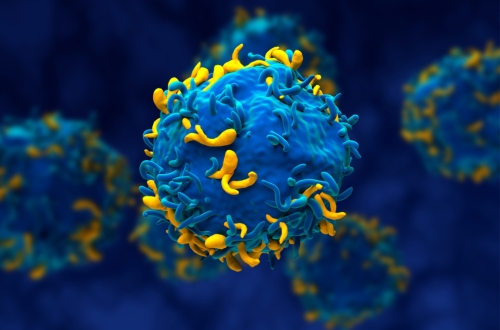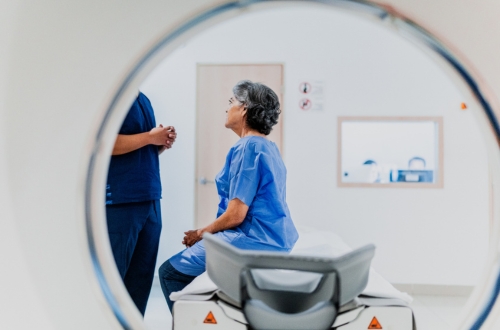Emerging Trends in Early-Phase Oncology Trials: What to Watch in 2024
The 2024 American Society of Clinical Oncology (ASCO) conference kicked off in Chicago from May 31 to June 4. This year’s theme, “The Art and Science of Cancer Care: From Comfort to Cure,” emphasized innovative developments in the field of oncology helping transform cancer from a terminal disease into a chronic one. The annual ASCO conference is one of the most notable events in the world of cancer research, with a variety of researchers, pharmaceutical sponsors, and oncology CROs (contract research organizations) congregating to showcase several recent advancements in early-phase oncology trials. Based on the 2024 theme, discussions revolved around optimizing therapeutic doses, regimens, and combinations to improve the quality of life of cancer patients during and after treatment. ASCO especially held witness to some notable updates from recent oncology trials, demonstrating highly promising opportunities to shift the future of cancer therapy. Read on to discover five emerging trends in early-phase oncology trials to watch for in 2024!
1. Investigating the Potential of Cancer Vaccines in Early-Phase Oncology Trials
The emergence of mRNA vaccines, especially in the wake of the COVID-19 pandemic, has brought a promising new approach to the landscape of cancer immunotherapy. Whereas traditional vaccines use proteins or peptides, mRNA vaccines rely on a genetic copy of DNA to stimulate an immune response in the body. Key components of mRNA vaccines include tumor-specific antigens (TSAs), tumor-associated antigens (TAAs), and immune modulatory factors, all of which work together to promote activation of the immune system against tumors. Although this treatment approach remains in early-phase oncology testing, several trials have demonstrated their safety, flexibility, and efficacy, even in tumors with historically poor immunogenicity. Their specificity also addresses the growing interest in personalization and commercialization specific to individual patients in cancer therapy.
Recent Findings in Early-Phase Oncology Trials for Cancer Vaccines
At ASCO 2024, a collaboration between Moderna’s personalized therapy mRNA-4157 and Merck’s humanized antibody Keytruda demonstrated promising results for use in melanoma. This treatment has shown substantial benefit in melanoma patients with an impressive survival rate of nearly 90%, with the ultimate goal being to reach a 100% survival rate for patients who will still be alive after 4-5 years. Elicio Therapeutics also announced the results of their lead candidate (an off-the-shelf vaccine) ELI-002 7P, a seven-peptide formulation of its off-the-shelf cancer vaccine, led to a significant 71% of patients experiencing tumor biomarker reductions in a phase 1 study. The biotech company, Brenus Pharma, also recently presented the study design to investigate their first-in-human cancer vaccine, STC-1010. For further information on the latest advances in early-phase oncology cancer vaccine trials, read more here.
2. Harnessing Microbiome-Based Therapies in Oncology Trials
The gastrointestinal (GI) tract houses a complex microbiome containing hundreds of bacterial species that maintain delicate hemostasis, to which disruptions can contribute to the progression and development of diseases, including cancer. Although microbiome-based medicines, including biomarkers and therapeutics, are not a new practice in modern medicine, recent advancements have introduced the possibility of live biotherapeutics and phage therapies to restore gut health. The emergence of metagenomic sequencing technologies has also improved researchers’ ability to identify key microbial biomarkers associated with abnormal phenotypes in conditions such as type 2 diabetes, colorectal cancer, liver cirrhosis, and hepatocellular carcinoma.
Recent Findings in Early-Phase Oncology Trials for Microbiome-Based Therapies
The biotech company Biomica presented positive preliminary results at ASCO 2024 from their early-phase oncology clinical trial of its live bacterial product, BMC128, for patients with renal cell cancer, NSCLC, and melanoma. Their findings demonstrated halted disease progression in 64% of the patients, with all RCC patients and 60% of NSCLC patients demonstrating positive clinical outcomes. For further information on the latest advances in microbiome-based therapies presented at ASCO 2024, read more here.
3. Cancer Detection Tests Under Early-Phase Oncology Testing
Early disease detection is crucial for improving clinical and prognostic outcomes in cancer patients, driving the increasing availability of cancer detection tests. Currently, the United States Preventive Services Task Force (USPSTF) provides recommended screening guidelines for breast, cervical, colorectal, and lung cancers, resulting in associated cancer-related mortality. However, 70% of cancer-related deaths in the U.S. among those aged 50–79 continue to be caused by cancers without USPSTF-recommended screening. For this reason, more research is being conducted into various cancer detection tests, such as Galleri®, a multi-cancer early detection (MCED) test that indicates whether a cancer signal was detected and, if so, recommends the likelihood of organ or organ system of cancer involvement. Minimal residual disease (MRD) testing is also under investigation, with MRD referring to the small number of cancer cells in the body after cancer treatment. If positive, the MRD test indicates the presence of residual disease following treatment, whereas negative MRD results mean that no disease was detected afterward. The most common tests used to measure MRD include flow cytometry, polymerase chain reaction (PCR), and next-generation sequencing (NGS).
Recent Findings in Early-Phase Oncology Testing of Cancer Detection Tests
Researchers from the Institute of Cancer Research (ICR) in London presented at ASCO 2024 findings from a study that evaluated an at-home DNA test based on saliva samples to detect prostate cancer that was otherwise missed in a blood test. Their findings indicated this test could help identify hidden tumors in men with normal prostate-specific antigen (PSA) levels who have an increased genetic risk for the disease. There was also a higher proportion of aggressive malignancies found by the saliva test, relative to the PSA blood test.
4. Antibody-Drug Conjugates Show Early Promise in Oncology Trials
Antibody-Drug Conjugates (ADCs) are a promising class of potent antitumor drugs that combine the properties of chemotherapy and immunotherapy that have been tested in early-phase oncology trials since the 1980s with mouse immunoglobulin-G antibodies. The properties of ADCs enable them to be attached to highly cytotoxic cancer drugs for selective delivery of potent drugs to tumor cells while sparing healthy ones. This addresses the challenge of traditional chemotherapy, wherein side effects are especially common due to healthy cells being damaged. However, for ADC therapy to be effective, the antigenic target of the monoclonal antibody (mAb) component must be highly expressed in the tumor and exhibit no or low expression in healthy cells. It should also be displayed on the tumor cell surface to be available to the circulating mAbs, as well as possess the ability to transport the ADC into the cell. Without these requirements being met, the ADC may not be properly internalized into tumor cells, resulting in its off-target release and potential systemic toxicity.
Recent Findings in Early-Phase Oncology Trials for Antibody-Drug Conjugate Therapies
Based on data presented at ASCO 2024, AbbVie’s ADCs, ABBV-400 and ABBV-706, have shown promising early clinical data, with boosted antitumor activity in patients. Their LUMINOSITY study showed Teliso-V had an overall response rate of 28.6% in patients with c-Met protein overexpression. AstraZeneca also showcased the results of their ADC, which reduced the risk of breast cancer progression by 37% in a clinical trial against chemotherapy in patients who are HER2-positive, HER2-low, and HER2-ultralow.
5. Emerging First-in-Class PARP Inhibitors for Breast Cancer Oncology Trials
Breast cancer is the second most prevalent cancer globally and the most common malignancy among women, accounting for 12% of all cancer cases diagnosed in 2018. A significant fraction of breast cancer patients, up to 10%, possess inherited DNA mutations, particularly the BRCA1 and BRCA2 mutations. Considering the presence of mutations in the BRCA1 and BRCA2 genes is associated with younger age at diagnosis, aggressive disease characteristics, and a higher risk of disease recurrence, there is a crucial need for more effective treatment options like poly(ADP-ribose) polymerase (PARP) inhibitors for patients with these forms of breast cancer.
Currently, two PARP inhibitors, olaparib and talazoparib, have been approved by the United States Food and Drug Administration (FDA) and the European Medicines Agency (EMA) for HER2-negative breast cancer. These drugs function by binding to PARP, inhibiting PARylation, trapping the inactivated PARP on DNA, and thereby blocking replication forks. This results in the collapse of replication forks and the generation of double-strand breaks to promote tumor cell death, which presents valuable opportunities in chemotherapy and oncology trials.
Recent Findings in Early-Phase Oncology Trials for Emerging PARP-1 Inhibitors
AstraZeneca presented the results of their early-phase oncology PETRA study at the 2024 American Association for Cancer Research (AACR) annual meeting, demonstrating the promising efficacy and safety of their first-in-class PARP1-selective inhibitor, saruparib. The drug was tested in heavily pretreated breast cancer patients with homologous recombination-repair mutations. As described in this article, saruparib demonstrated deep and durable responses, high response rate, tumor reduction, and prolonged progression-free survival.
Conclusion
In conclusion, this year’s ASCO and AACR conferences have showcased the numerous innovative developments currently occurring in the field of oncology, with the potential to significantly improve cancer treatment. From mRNA vaccines, microbiome-based therapies, and cancer detection tests to antibody-drug conjugates and first-in-class PARP inhibitors, early-phase oncology trials are seeing several exciting advancements. These trends are key steps to slowly transforming the lifetime burden of cancer on patients and potentially improving their negative impact on quality of life during and after treatment in the future of cancer therapy.
TFS Oncology CRO: An Industry Leader in Supporting Cancer Clinical Research
TFS HealthScience is a top global, mid-size contract research organization (CRO) helping pharmaceutical and biotech companies run more efficient clinical trials. TFS’s Oncology and Hematology services are dedicated to providing comprehensive support for your oncology trials, whether they’re local or global. With a proven track record of over 300 cancer-related clinical trials across all phases, we’re committed to delivering solutions that match your needs. Our global operations teams are fully experienced in navigating the complex landscape of cancer clinical research, offering rigorous operational oversight and adherence to global standards under the strong leadership of Bin Pan (Ph.D.), Executive Director, Head of Oncology & Hematology at TFS. Visit our oncology CRO website to learn more, or connect with a TFS representative here!
Connect with Us
Contact us today to discover how TFS can be your strategic CRO partner in clinical development.



